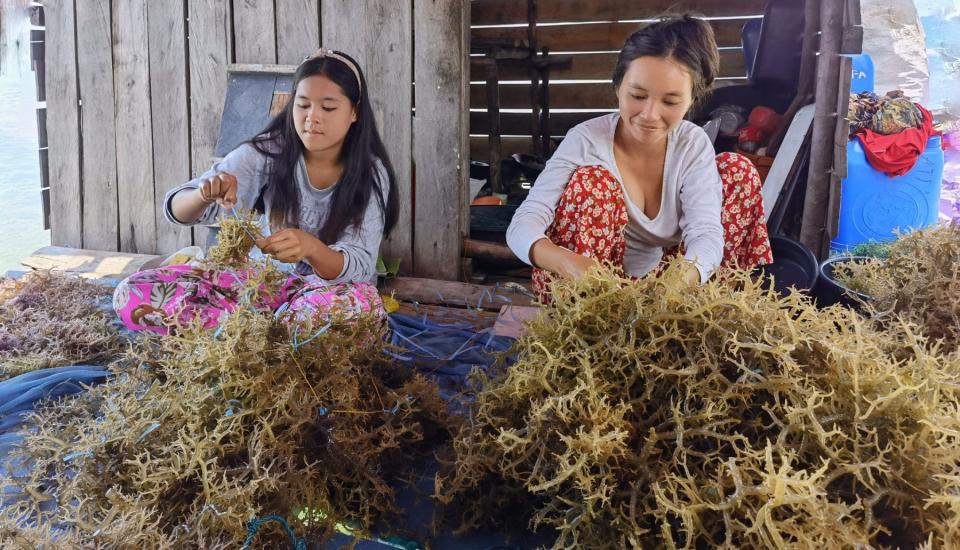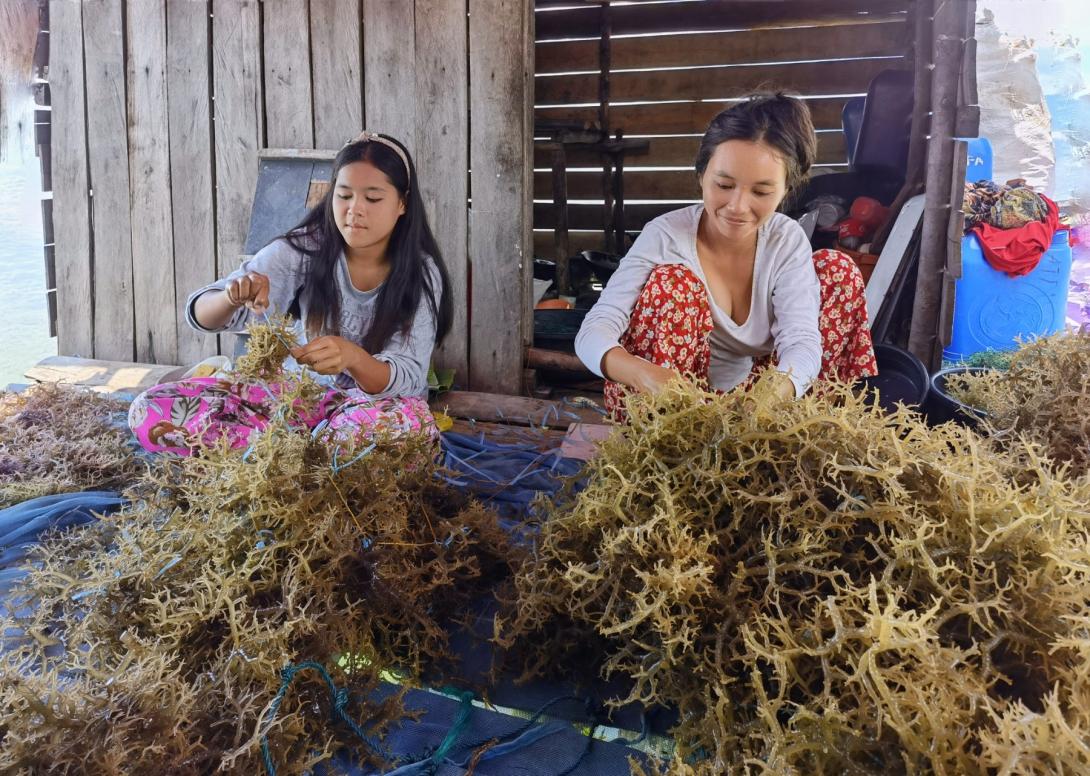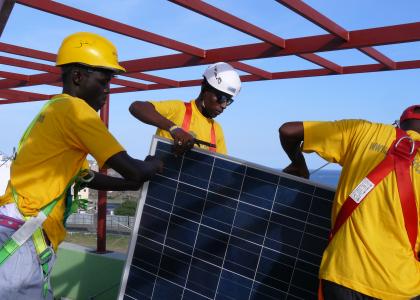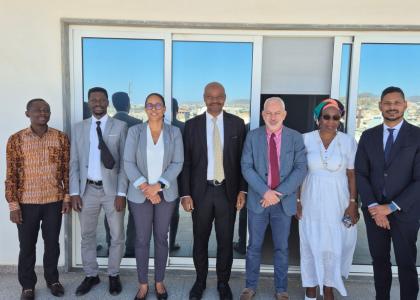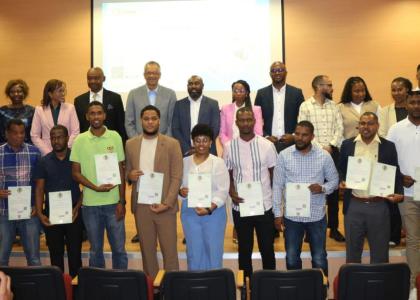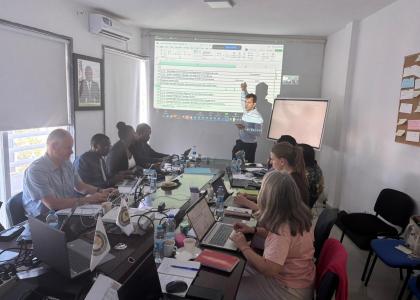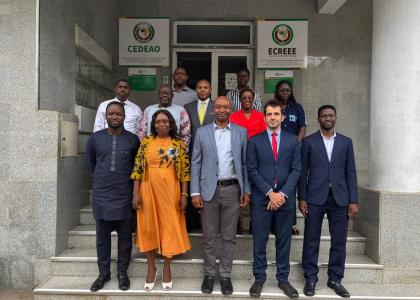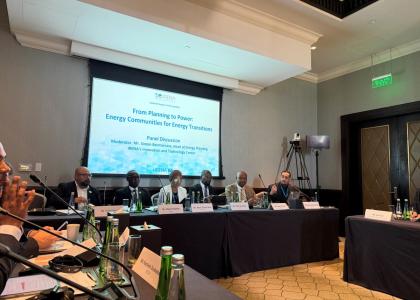As part of the 3rd UN Ocean Conference, the virtual side event “Waves of Change: Women’s and Youth Leadership in the Renewable Energy Ocean Economy” was held on 12 June 2025. Co-hosted by the Government of Cabo Verde and co-organized by UNIDO, CCREEE, the Gender and Energy Compact, and the GN-SEC, the event brought together government leaders, youth advocates, gender experts, and innovators to spotlight the vital role of women and youth in shaping a sustainable and inclusive ocean-based renewable energy future.
Moderated by Katharina Pröstler, Gender and Social Inclusion Expert at UNIDO, the session featured keynote insights, an engaging panel discussion, and youth-led interventions — all underscoring the need for inclusive leadership in the blue economy. The event also showcased creative outreach tools, including the OTEC Activity Book for Kids, a multilingual resource introducing children to ocean thermal energy conversion and sustainability.
“This initiative helps future energy leaders understand that clean energy solutions can be tailored to their communities,” said Karina Sgarbi, Communications Manager at Global OTEC. “We want children to see themselves in this future—and know they belong in it.”
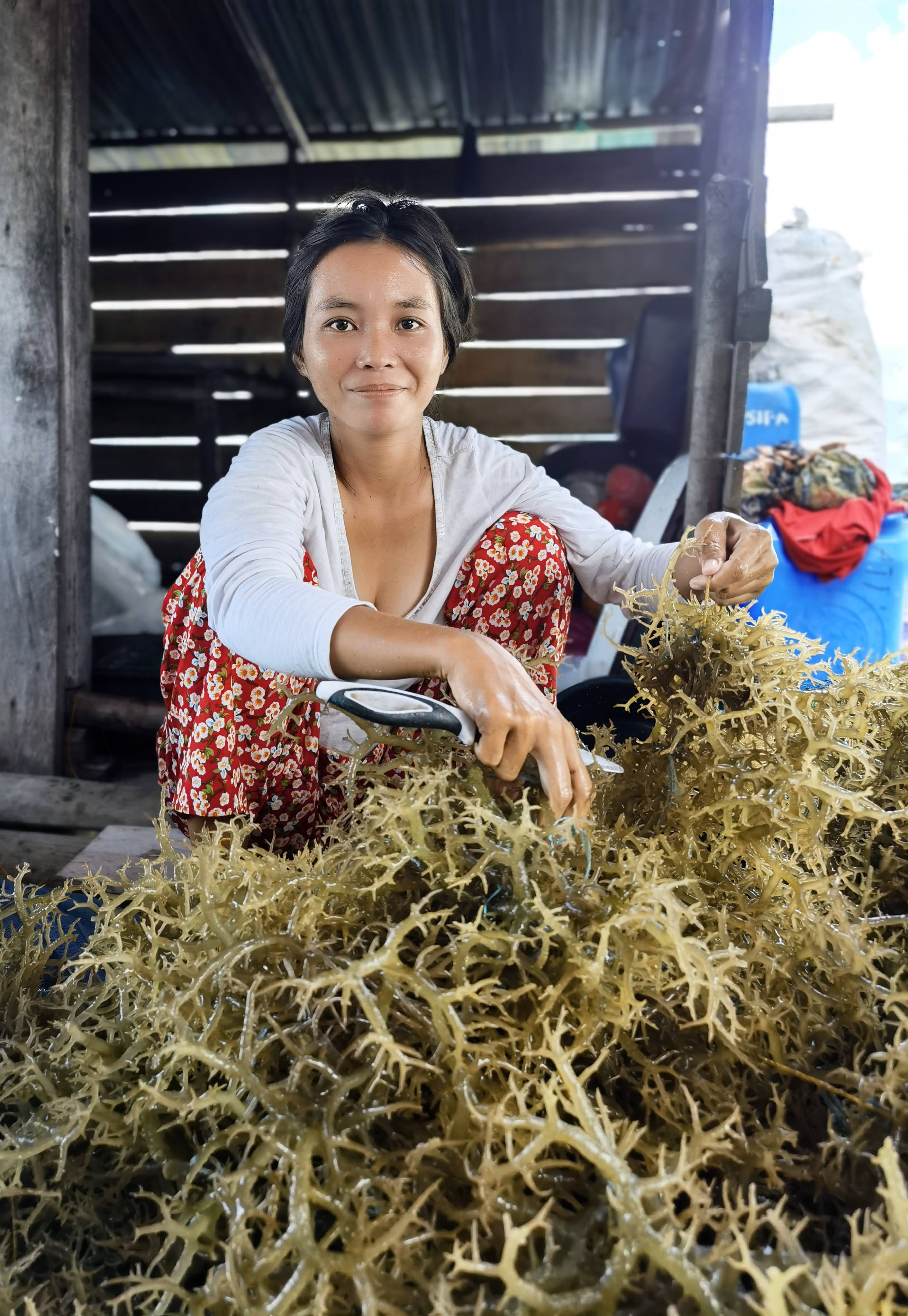
Key Issues Discussed
The event addressed the ongoing exclusion of women and youth from leadership roles in the ocean energy sector—an equity gap that also limits innovation and progress. Carlos Monteiro, Director of Energy Services in Cabo Verde, affirmed, “Women are not merely recipients of energy policies — they are leaders and drivers of the energy transition.”
Speakers stressed the importance of gender-responsive marine policies and inclusive governance that reflect the lived realities of coastal and island communities. Riccardo Savigliano, Chief of Energy Systems and Industrial Decarbonization at UNIDO, emphasized,
“This is not only about equity — it’s a missed opportunity. Youth bring fresh perspectives and bold innovations that are essential for building future-ready economies.” Despite significant barriers, especially in Small Island Developing States (SIDS) and Least Developed Countries (LDCs), the event highlighted the power of youth- and women-led initiatives.
“We are stepping up as changemakers today,” said Julia Tapilatu, a 24-year-old marine conservationist from Indonesia. Amber Hoyte of CCREEE emphasized the value of regional collaboration: “When we diversify our inputs, we become more complete. Collaboration makes us better in every regard.” Storytelling and education were also recognized as key tools for building awareness. Karina Sgarbi shared how the OTEC Activity Book for Kids was designed to make complex energy topics accessible to young audiences. Explore the book.
“We want children to understand that they have a place in the clean energy transition — and that the future includes them.” Corinne Dubois, President of Ys Energies Marines Développement and Are Uira, noted: “Marine renewable energy is a new sector — there are no old networks to break into. That’s why we must embed gender parity from the start, through technical training and community education.”
Sedef Budak, Founder of the Green Collar Women Association and Chief Growth Officer at Usens Energy Solutions, reinforced the need for visible role models: “Good examples create good copies. When women lead in green careers, others follow—and the entire sector becomes stronger and more innovative.” The discussion also stressed the need for public-private partnerships and grassroots innovation to accelerate inclusive, systemic change.
Key Recommendations for Action
Participants called for concrete actions to ensure women and youth are empowered to lead the ocean energy transition:
-
Promote inclusive leadership through structural reforms and capacity building
-
Strengthen regional collaboration to leverage economies of scale
-
Expand access to finance, education, and technical training for underrepresented groups
-
Integrate gender and youth perspectives into marine technologies and business models
-
Support cross-sector partnerships to scale community-led innovation
-
Improve data collection by using sex- and age-disaggregated indicators to inform inclusive policy
The session closed with a moving call to action from Alexa Charouhis, a 15-year-old environmentalist from Miami and founder of We Are Forces of Nature, who highlighted her One Million Mangroves Initiative and urged for youth-led climate action: “Youth are the doers. We are the yes-we-can thinkers. We are innovators—and we are changing the world.”
In her concluding remarks, Natália Weber, Project Manager at GWNET, echoed a core theme of the event: “The future of ocean energy must be inclusive, sustainable, and just. Each of us has the power to influence change — and together, we can transform an entire sector.”
Learn more: https://genderenergycompact.org

